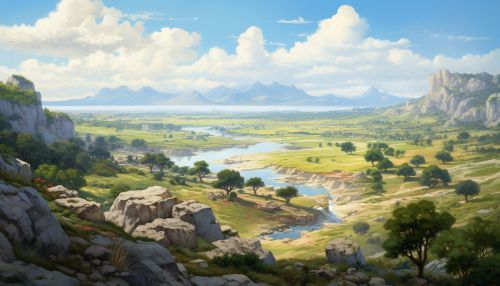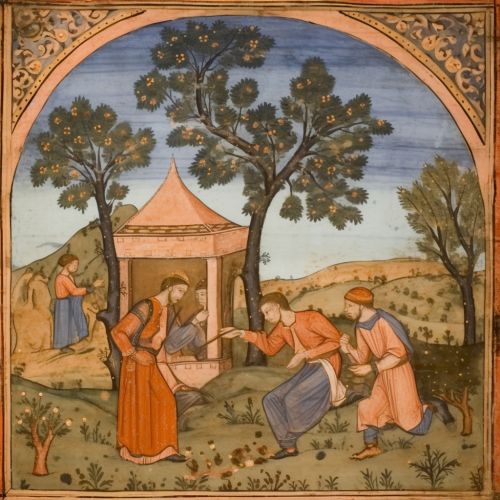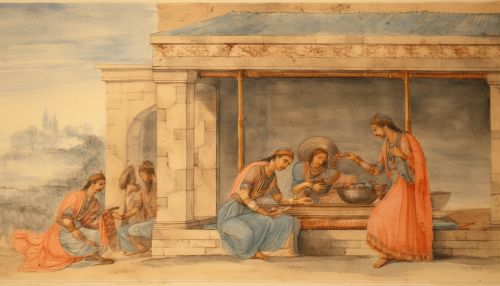Hesiod
Early Life
Hesiod, an ancient Greek poet, is believed to have been born around 700 BC. He was a native of Boeotia, a region in central Greece, and is often considered one of the earliest and most significant figures in Western literature. His works, which include "Theogony" and "Works and Days", provide valuable insights into the beliefs, customs, and daily life of ancient Greece Read more.


Works
Hesiod's two complete extant works, "Theogony" and "Works and Days", are among the earliest known didactic poems. "Theogony" is a genealogical account of the gods, providing a comprehensive overview of Greek mythology Read more. "Works and Days", on the other hand, is a compendium of moral and practical advice for a life of honest labor.
Theogony
"Theogony" is a narrative of the origins and genealogies of the Greek gods. It begins with Chaos, the primal void, and proceeds through successive generations of deities, culminating in the reign of Zeus, the king of the gods. The poem provides a comprehensive account of the cosmogony (creation of the world) and theogony (birth of the gods) according to Greek mythological tradition.
Works and Days
"Works and Days" is a didactic poem that offers practical advice for life, emphasizing the importance of hard work and justice. It is addressed to Hesiod's brother Perses, who had squandered his inheritance and was seeking more through litigation. The poem also contains the earliest known version of the Pandora's Box myth Read more.
Influence and Legacy
Hesiod's works have had a profound influence on Western literature and thought. His theogonic and cosmogonic narratives have shaped the Western conception of the universe and its origins. His moral and practical teachings in "Works and Days" have informed Western ethical and philosophical traditions. Hesiod's works have also been a primary source of Greek mythology, providing a rich trove of myths and legends that have inspired countless works of literature and art throughout history.


